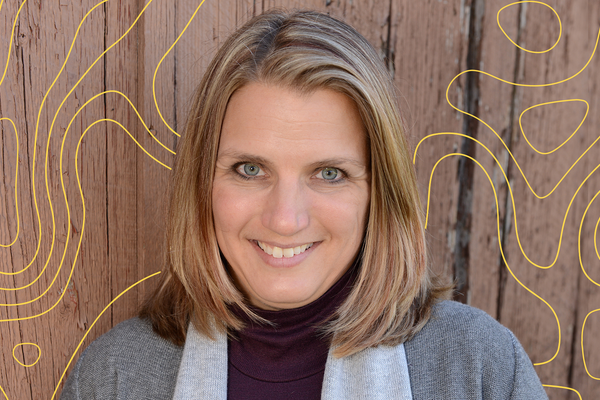
Alumni Know: How to plan a holiday feast
Alumnus and chef Elizabeth Kerr (BA '87) shares advice to make an easy and delicious meal

Alumnus and chef Elizabeth Kerr (BA '87) shares advice to make an easy and delicious meal
By Staff Office of AdvancementThe holidays can come with a lot of excitement, but also a lot of pressure. If you're hosting friends or family in the coming weeks, you know there are a lot of moving pieces that come with holiday feasts and food.
Elizabeth Kerr, a Waterloo alum and chef, joined Alumni Know to share advice on the topic. For years, Elizabeth was a passionate home cook, exploring different cultures and flavours on her own time. But in 2020, she decided to go professional and entered a culinary program. Today, she works in professional kitchens — at local top restaurants and a culinary school — while maintaining her home cooking passion. Watch the video for tips to make your holiday food more special and less stressful.
Before you start planning your menu, Elizabeth suggests that you understand the resources you have on hand, mainly your time and budget. As the host of a gathering, you deserve to be happy and enjoy yourself with your guests, and that requires a menu that is reasonable and achievable. (1:15) Another way you can reduce stress is to stay organized — plan your menu and don't leave all the work to the last minute. (3:20)
Elizabeth prefers to plan a gathering menu in 3-4 courses, and excludes appetizers from her plans. She begins with an anchor for the meal. What do you absolutely want to serve? Perhaps it's a turkey, or the family's favourite rice dish. Then, you can build around it using flavours or a theme. Elizabeth uses an upcoming family dinner as an example. It began with a bolognese sauce and follows an Italian theme. (5:00)
Often, the anchor dish will be part of your main course. For a 3-course meal, you'll want to add an opener (like a salad or soup), as well as dessert. To pick your remaining dishes, Elizabeth offers a few different considerations. Think about the people who will sit around the table and add dishes that they love. For more inspiration, do a search for recipes that fit your theme. For dessert, consider serving a board of cookies, fruit, nuts and other favourite sweets. (7:40)
When you want to up your plating game, Elizabeth encourages you to search for the dish you're making, along with the words "elegant plated." It's a great way to find restaurant-style plating examples that you can mimic at home. She also suggests sprinkling or placing fresh herbs to finish your plate, managing the proportions you serve, and warming your plates before serving. (14:00)
When others are bringing dishes for the meal, Elizabeth encourages hosts to create a clear plan. You should have some idea of what you want the meal to look like. If you hope to have a green vegetable in the meal, make that clear. She also suggests that the host could take the most complicated or largest piece of the meal. (18:50)

Read more
Financial advisor Alexandra Horwood (BA '10) explains the truth behind financial services and fees

Read more
Social psychologist Sara Konrath (BA '02) shares the science behind giving and some unexpected benefits of generosity

Read more
Author Carolyn Mills (BA '00) shares an inside look at the writing and publishing process
The University of Waterloo acknowledges that much of our work takes place on the traditional territory of the Neutral, Anishinaabeg, and Haudenosaunee peoples. Our main campus is situated on the Haldimand Tract, the land granted to the Six Nations that includes six miles on each side of the Grand River. Our active work toward reconciliation takes place across our campuses through research, learning, teaching, and community building, and is co-ordinated within the Office of Indigenous Relations.